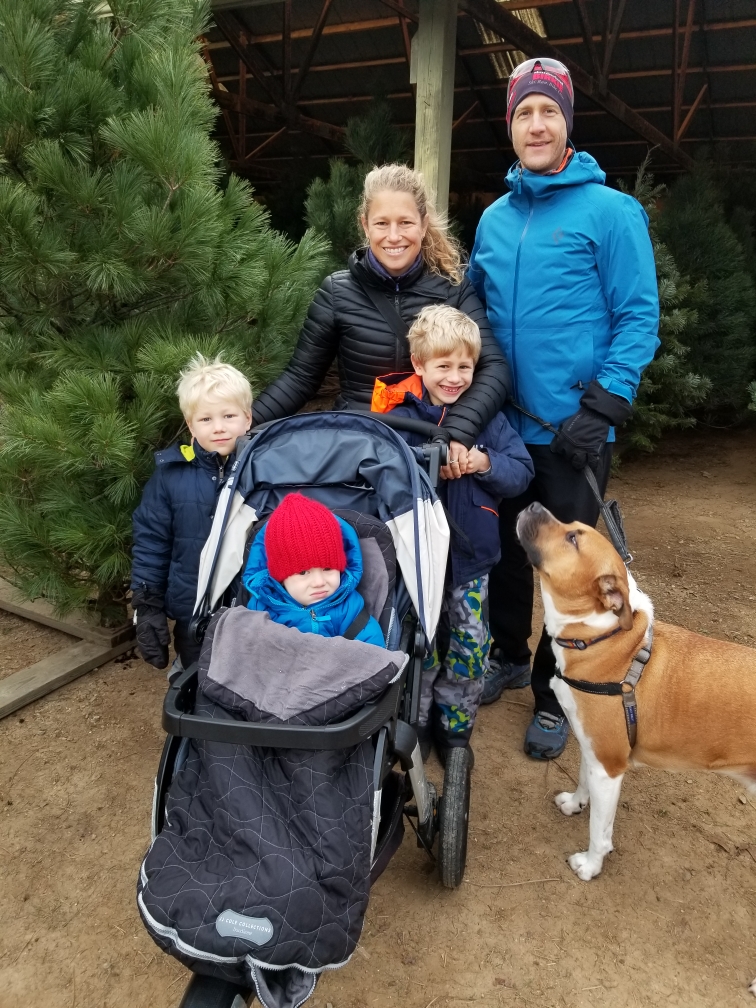
Dr. Sean Ronnekliev-Kelly, MD and family
Catch up with Sean Ronnekleiv-Kelly, MD, a graduate of our general surgery residency.
What year did you graduate?
I completed my residency at the UW School of Medicine and Public Health in June 2015, and completed my fellowship in June 2017 from Johns Hopkins.
What was your area of surgical focus during your time here?
General Surgery. My fellowship was in surgical oncology.
Where do you work now?
UW School of Medicine and Public Health.
Reflecting on your time here at UW Dept of Surgery, what do you believe helped you prepare for the surgical career you have now?
There are periods in everyone’s training and career in which significant advancements are made due to exceptional mentorship. This was definitely one of the strongest components of training at UW – the outstanding mentors. There were several faculty within the Department of Surgery that took substantial time and effort to ensure that I had the compassion, knowledge base, and skillset to provide the best possible care for our patients. Furthermore, my mentors helped to cultivate intellectual curiosity, which has carried forward in my clinical care and research program. For these reasons, I felt well prepared for my surgical oncology fellowship and my subsequent career in complex general surgical oncology.
What is a fond or funny memory you have that brings a smile to your face when you think about your time at UW?
Although I have many, two stand out:
I must say that our chief class outing at the conclusion of residency was a very fond memory. The five of us (Vanessa Nomellini, Chris Janowak, Adam Brinkman, Laura Fischer and myself) and the Chief of Surgery, Herb Chen, went to Devil’s Lake for rock-climbing and a barbeque. We set up a top-rope on one of the rock climbing routes at the south part of the lake. While Chris and Herb flew up the rock climbing route like professional climbers, Vanessa, Laura and Adam were adamantly opposed to being any distance off the ground while connected to a rope and on a rock face. In fact, Adam proceeded to explain to me in great detail (unsurprising to those who know Adam) why this was such a terrible idea. Eventually, with much encouragement, they got up on the rock – although not quite as deftly as Chris or Herb. Regardless, it was a testament to their fortitude that they gave it a try. Following this, we had some great food and drink and enjoyed the wonderful setting. This trip exemplified the excellent camaraderie that we, as a class, had developed.
A second memorable moment that stands out surrounds a ski event called the Birkebeiner. This is a 50km ski race in Hayward, in northern Wisconsin, in which some residents and faculty participate. As a resident, I had wanted to sign up for the race, but the entries had closed, as they were full. Luckily, one of the transplant surgery faculty – Josh Mezrich – had signed up but was unable to attend. I had worked with Josh during my research years and so this had somehow been brought up during one of our conversations. We decided that I could ski in his stead. Little did I know that several of the transplant surgeons actually competed for time. Sure enough, Josh Mezrich posted a faster time than Hans Sollinger that year, and Josh made sure Hans was aware. We still chuckle about that one to this day. This memory was particularly relevant because it reflects the good camaraderie among faculty and residents.
How do you instill the values and lessons learned during your UW experience to a new generation of surgical trainees?
I think it’s important for the surgical trainees to recognize that there is no substitute for hard work and dedication, and that compassionate patient care is the cornerstone of surgery. Open discussion and dialogue is essential to convey these important concepts, but perhaps the best mechanism to pass along these important values is through exemplary role modeling – especially by mentors. I recall that the most long-lasting values and durable habits that I developed during residency that have served me well as faculty were imparted directly from interactions with mentors. These mentors can arise from many different settings – clinical, research, within the Department of Surgery and outside the Department. It is critical for residents to identify these role models early on to obtain meaningful guidance throughout their training.
Do you stay in touch with your co-residents and faculty from UW?
Yes, my graduating class remains in contact fairly consistently. Although we ultimately ended up specializing in diverse subspecialties (trauma / EGS, minimally invasive, pediatric surgery, surgical oncology), at various locations around the country, we oftentimes communicate to see how each is doing. We all try to attend similar meetings, with varied success, so that we can catch up. Additionally, one of my graduating class (Adam Brinkman) returned to UW the same time as I did to join the pediatric surgery faculty. He and I communicate with regular frequency about critically important topics such as family, UW football, UW basketball, and life in general.
What else have you been up to these days?
I’m very much enjoying my time back in Madison, where my 3 boys are developing an appreciation of all Wisconsin has to offer. Also, I’m getting to work with many of the outstanding people that provided mentorship and guidance while I was a resident.
Thanks for catching up with us, Dr. Ronnekleiv-Kelly! Are you interested in sharing an update with the alumni network? If so, email us at alumni@surgery.wisc.edu to be included.